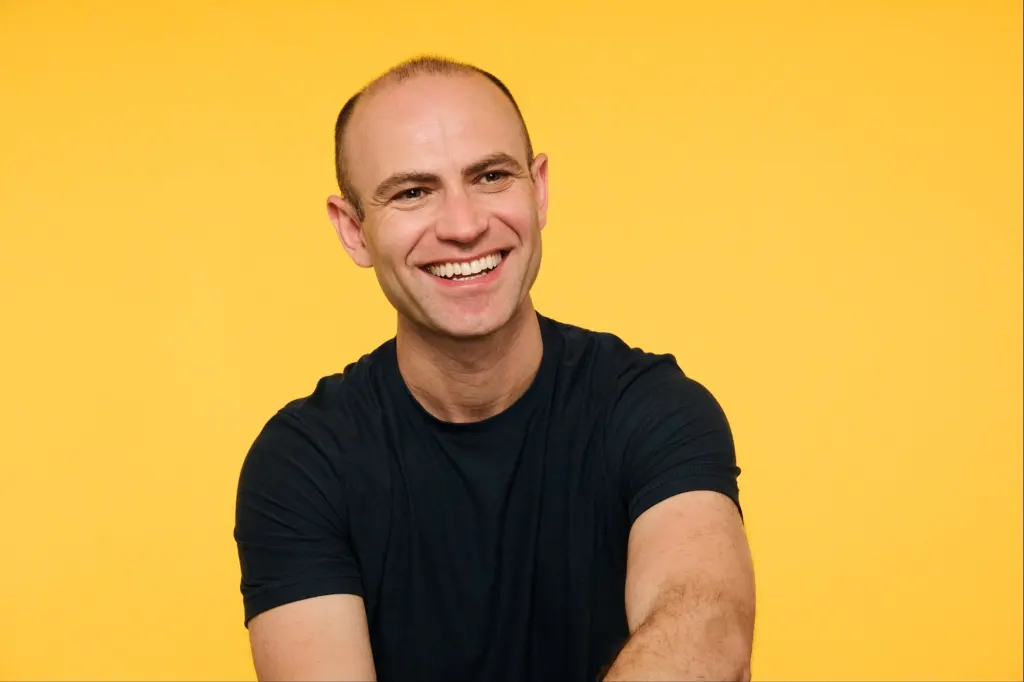Copyright Entrepreneur

Key Takeaways Joe Spector, 45, is the CEO of Dutch, an online telehealth service for pets. In a new interview, Spector shared that Dutch had no customers the first few weeks after launch. Here’s how Spector got his first customer, and half a million more. In July 2021, Joe Spector had all of the right ingredients to launch his new venture. Spector was working on Dutch, an online veterinary care service that would meet pet owners at their moment of need. For a subscription fee, customers could access unlimited medical care and medicine. Spector had the experience to make Dutch a success. He was previously a co-founder of the $9.3 billion telehealth startup Hims & Hers, and he helped lead the company to a $1 billion initial public offering in January 2021. He had the funding: Spector had raised $5 million in seed funding from venture capital firm Forerunner Ventures to get Dutch started. Related: She Took Her Business From a $5,000 Investment to Over $1 Million in Revenue — Here Are Her 3 Profit Hacks for Small Business Owners He also had the right people: Using the seed money, Spector hired five employees, including a chief medical officer, two engineers and legal and marketing personnel, to work on Dutch with him. The only problem? At launch, Dutch had zero customers. “It was crazy, because we had just raised $5 million,” Spector tells Entrepreneur in a new interview. “I had very many sleepless nights and an ulcer, and it was a lot of pressure. It wasn’t just that we raised this money, but these five people decided to leave their jobs to come work with me on this business.” Spector and his team began to talk to potential customers about their pricing, and uncovered what Spector calls his “biggest mistake” — mimicking the pricing structure of Hims & Hers too closely. Hims & Hers offers a single price for telehealth visits and medicine, bundling the two costs together into a single price for different purposes, like weight loss and hair regrowth. Spector copied that model by going to market with a single price, $50 per month, for Dutch that included talking to a veterinarian, plus any possible medications for pets. Related: My Business Tapped Into a Misunderstood Market and Made $760,000 in Year 1 However, he quickly found that human healthcare was different from pet healthcare. Pet owners were reluctant to pay $50 a month if they didn’t need medicine or only required a little bit of it. They didn’t want to subsidize the people who needed a lot of medicine for their pets for that single price. “We found the insight from starting to speak to potential customers about our pricing,” Spector says. Spector decided to unbundle the two costs and make the cost of membership, including veterinarian visits, one fee, and the cost of any possible medications a separate fee. “Once we made it super clear for consumers what they’re getting, that really unlocked us starting to take off in acquiring customers,” Spector says. Related: This 29-Year-Old Founder Took a $150,000 Pay Cut to Become CEO of His Own Startup. Here’s Why He Says It Was Worth It. In August 2021, one month after launch and after unbundling pricing, Dutch found its first customer. Since launch, the startup has had over half a million customers sign up for one of its membership plans. The business is “almost profitable,” according to Spector. It recently transitioned from offering monthly and annual memberships to annual-only memberships that cost $132 per year for unlimited veterinary services and coverage for up to five pets. “We have seen our revenue double year-over-year each of the last three years that we’ve been in business,” Spector says. “Now that we’ve moved to annual-only memberships, our retention has also doubled.” Spector says that he challenges the standard of what an entrepreneur should be because he comes from humble beginnings. When Spector was 10 years old, his family immigrated to the U.S. from what was then the Soviet Union, now Uzbekistan. They lived on welfare and food stamps when they first arrived in the U.S. As an immigrant founder, Spector, now 45 years old, says he did not have the safety net of well-to-do parents who could help him out if his entrepreneurial ventures failed. Spector says people would tell him that he wasn’t talkative or “sales-y” enough to be a startup founder. His mistake early on was thinking that an entrepreneur was someone who had certain characteristics and trying to fit that mold. “An entrepreneur can be anybody who wants to be an entrepreneur,” Spector says. “You don’t need permission.”



